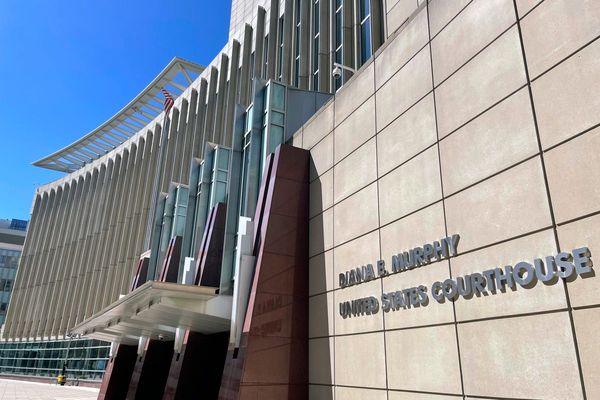
Beirut, Lebanon – In Lebanon, people are no strangers to conflict.
“If there has to be a war, then there will be a war. Do you know how many wars we have been through since I have been alive? We are used to it,” 55-year-old Ahmed Ali told Al Jazeera at a transport hub in Lebanon’s capital, Beirut.
In just his lifetime, Lebanon has been through a devastating civil war, a conflict with Israel, internal battles between armed factions and spillover from the war in neighbouring Syria.
But since the Palestinian group Hamas launched an unprecedented operation against Israel on Saturday, residents in Lebanon have looked on with trepidation.
The tiny Levant country of just 6 million people – already reeling from a historic economic meltdown – is on the cusp of conflict following an uptick in cross-border violence with Israel.
On Monday, Israeli shelling killed three members of the Lebanese Shia group Hezbollah, according to a statement from the Iran-backed organisation. An Israeli deputy commander and two Palestinian fighters in southern Lebanon were also killed.
The next day, Hezbollah fired a guided missile at an Israeli military vehicle. Israel retaliated by hitting a Hezbollah observation post that belongs to the mainly Shia armed group.
The escalation in violence has forced hundreds of Lebanese to remain inside their homes or flee towards the southern suburbs of Beirut.
“Most of the neighbours of my relatives have all fled their homes [out of caution],” Zein Abdeen, 21, told Al Jazeera. “Those with small children left right away, but young men living alone have stayed behind. They are not afraid.”
Another standoff?
In the summer of 2006, Hezbollah captured two Israeli soldiers with the aim of doing a prisoner swap deal with Israel. However, Israel responded by bombing the home of Hezbollah’s leader Hassan Nasrallah, prompting a 34-day war.
The conflict ended in a stalemate and the human cost was steep: about 1,100 Lebanese and 165 Israelis were killed.
The war gave Hezbollah a huge reputation boost across the wider Arab world as it celebrated its ability to withstand a full-throttle Israeli assault.
But faced with an acute financial crisis for years now – about 80 percent of Lebanon’s population lives below the poverty line – many fear the country will not be able to recover from another all-out war with Israel.
“Palestinians should be free. They shouldn’t be tortured,” said a Christian Lebanese man who identified himself as Abu George. “But we should support them diplomatically, not militarily.”
After the devastation of Lebanon’s infrastructure in the 2006 war, several Gulf states donated large sums of money to repair the country. Saudi Arabia pledged an aid package of $500m and deposited $1bn into Lebanon’s central bank.
But with those same Gulf countries having withdrawn much of their support to Lebanon in recent years, angry at Hezbollah’s ties to Iran, many Lebanese fear they will not get that level of support again.
“I am scared of the possibility that we will be at war. In the past, there were people to help Lebanon. But now, who is going to help us?” asked Abu George.
Economic woes
Not everyone shares the fear of what a war would bring. Frustration with Lebanon’s economic situation has some Lebanese thinking that things cannot get much worse.
In 2021, the World Bank classified Lebanon’s economic implosion as one of the worst crises since the 19th century. In June last year, the International Monetary Fund said “vested interests” were behind Lebanon’s political class resisting crucial economic reforms.
Since 2019, Lebanon’s currency has lost about 98 percent of its value while its gross domestic product (GDP) has contracted by 40 percent.
“Who cares about a war?,” said Mohamad Aziz as he waited at a transport hub in Beirut. “We can’t afford to live, to eat food or to drink [water].”







